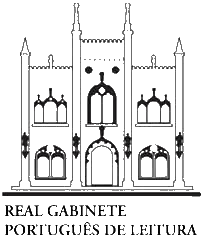Joaquim Manuel Magalhães: 50 anos da mais radical poética da destruição
DOI:
https://doi.org/10.37508/rcl.2025.n54a1351Palavras-chave:
Joaquim Manuel Magalhães, Poética da destruição, Paisagem em ruínas, Poética da resistência, Poesia portuguesa contemporâneaResumo
O ano de 2024 marcou o cinquentenário de atividade do poeta Joaquim Manuel Magalhães, que vem desenvolvendo uma obra de grande impacto no campo literário português desde 1974, quando lançou seu primeiro livro de poesia, Consequências do lugar. Neste artigo, iremos apresentar uma breve linha do tempo desse reconhecido escritor e crítico português, alguns de seus mais relevantes trabalhos e poemas, buscando situá-lo no panorama poético contemporâneo de Portugal. Com uma obra muitas vezes considerada polêmica, Magalhães é, entretanto, reconhecido por sua escrita de resistência, por meio da qual assumiu, tanto no campo da criação lírica como no plano teórico da análise, um posicionamento crítico em relação à contemporaneidade, ao identificar desvios na sociedade portuguesa pós-revolucionária. Com uma linguagem sarcástica e mordaz, falou de uma realidade dominada por ruínas, tanto sociais como econômicas, realidade que se apresenta, muitas vezes, em seus poemas, através de imagens de decadência e degradação. Tal imagética deteriorada se refletiu no discurso e assumiu contornos formais impactantes quando o autor decidiu realizar literalmente a destruição de toda a sua obra publicada até 2010 ao lançar Um toldo vermelho, um único volume no qual reuniu apenas fragmentos de poemas publicados em 36 anos de atividade como escritor, que passaram por uma completa operação de transformação e aniquilamento, o que fez com que esse livro se tornasse um marco da chamada poética da destruição. O autor repetiu tal ação em 2018 com o livro Para comigo e, em 2021, com a edição de Canoagem.
Downloads
Referências
ALVES, Ida. Olhares contemporâneos de Sebastião Uchoa Leite e Joaquim Manuel Magalhães. Revista Signótica, Goiás, v. 25, n. 1, p. 21-33, jan.-jun. 2013. Disponível em: https://revistas.ufg.br/sig/article/view/25713/15414. Acesso em: 06 ago. 2024. DOI: https://doi.org/10.5216/sig.v25i1.25713
BOTELHO, Ana Carolina. Imensas cidades povoadas de despovoamento. Uma análise da poética da destruição em Joaquim Manuel Magalhães. Revista Desassossego, São Paulo, v. 13, n. 26, p. 92-106, jul./dez 2021. Disponível em: https://www.revistas.usp.br/desassossego/article/view/188580. Acesso em: 08 ago. 2024. DOI: https://doi.org/10.11606/issn.2175-3180.v13i26p92-106
COMPAGNON, Antoine. O demônio da teoria: literatura e senso comum. Tradução de Cleonice P. B. Mourão e Consuelo Fortes Santiago. Belo Horizonte: Editora UFMG, 1999.
LOPES, Silvina Rodrigues. Literatura, defesa do atrito. Belo Horizonte: Editora Chão da Feira, 2012.
MAGALHÃES, Joaquim Manuel. Alta noite em alta fraga. Lisboa: Relógio D` Água, 2001a.
MAGALHÃES, Joaquim Manuel. Consequências do lugar. Lisboa: Relógio D` Água, 2001b.
MAGALHÃES, Joaquim Manuel. Odiaria ser um totalitário do gosto. [Entrevista concedida a] Hugo Pinto Santos. Público, Lisboa, 26 out. 2018. Disponível em: https://www.publico.pt/2018/10/26/culturaipsilon/noticia/magalhaes-1848390. Acesso em: 06 ago. 2024.
MAGALHÃES, Joaquim Manuel. Os dias, pequenos charcos. Lisboa: Editorial Presença, 1981.
MAGALHÃES, Joaquim Manuel. Um toldo vermelho. Lisboa: Relógio D` Água, 2010.
MOREIRA JÚNIOR, Orlando. Cidade partida: segregação induzida e auto-segregação urbana. Caminhos da Geografia, Uberlândia, v. 11, n. 33, p. 1-10, mar. 2010. Disponível em: https://seer.ufu.br/index.php/caminhosdegeografia/article/view/15899/8974. Acesso em: 13 nov. 2024. DOI: https://doi.org/10.14393/RCG113315899
PAZ, Octávio. O arco e a lira. Tradução de Olga Savary. 2. ed. Rio de Janeiro: Editora Nova Fronteira, 1982.
RICOEUR, Paul. O processo metafórico como cognição, imaginação e sentimento. In: SACKS, Sheldon (org.). Da metáfora. São Paulo: Editora da PUC/SP (Educ) e Pontes, 1992. p. 145-160.
Downloads
Publicado
Como Citar
Edição
Seção
Licença
Copyright (c) 2025 Tereza Maria Tavares dos Santos Jorge

Este trabalho está licenciado sob uma licença Creative Commons Attribution-NonCommercial 4.0 International License.
Os autores que publicam nesta revista concordam com os seguintes termos:
a. Autores mantêm os direitos autorais e concedem à revista o direito de primeira publicação, com o trabalho simultaneamente licenciado sob a Licença Creative Commons Atribuição NãoComercial (CC-BY-NC 4.0) que permite o compartilhamento do trabalho com reconhecimento da autoria e publicação inicial nesta revista.
b. Autores têm autorização para assumir contratos adicionais separadamente, para distribuição não-exclusiva da versão do trabalho publicada nesta revista (ex.: publicar em repositório institucional ou como capítulo de livro), com reconhecimento de autoria e publicação inicial nesta revista.
c. Autores têm permissão e são estimulados a publicar e distribuir seu trabalho online (ex.: em repositórios institucionais ou na sua página pessoal) a qualquer ponto antes ou durante o processo editorial, já que isso pode gerar alterações produtivas, bem como aumentar o impacto e a citação do trabalho publicado.

A Revista Convergência Lusíada utiliza uma Licença Creative Commons - Atribuição-NãoComercial 4.0 Internacional.









